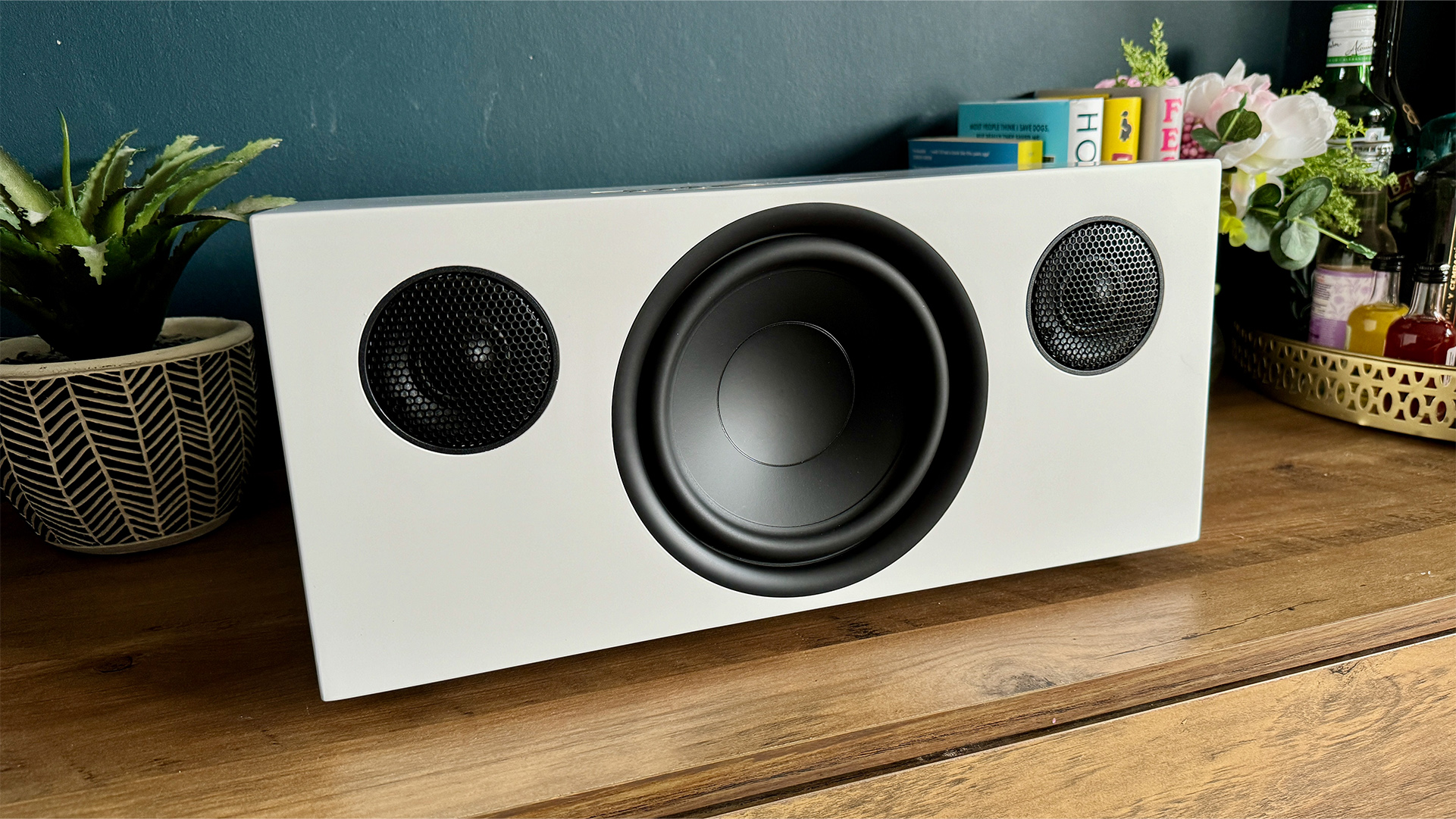LG vs Samsung TV: which is better?
Which TV brand is the best?
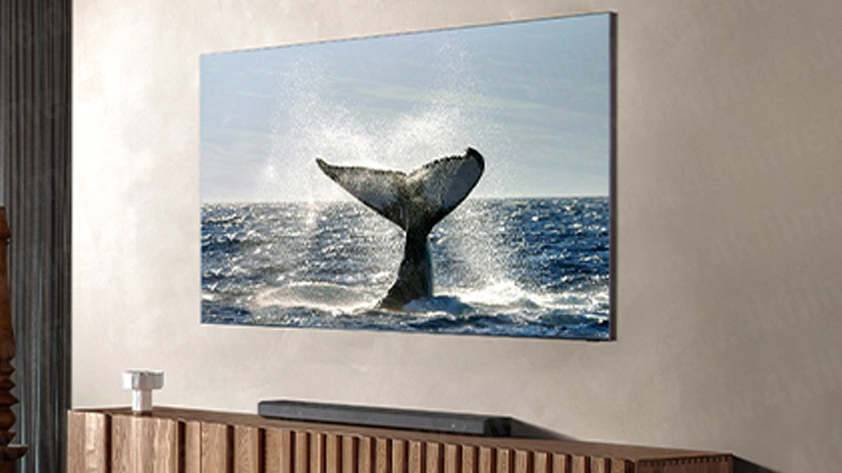
In the market for a shiny new TV? Whether you're after a monster set or something moderately sized, it's a sure bet that Samsung and LG will be competing for your hard-earned cash.
Each year the tech titans launch a slew of new televisions, featuring improved displays, more advanced processing and sleeker designs. And with the price of the older models dropping fast, there's a dizzying choice of sets on the market.
Whether you want 4K, HDR or even 8K, you might be having a tough time deciding between an LG TV or a Samsung TV. Which brand of TV is the best? What are the key differences? Having spent many hours locked in darkened rooms assessing LG and Samsung TVs, here's a handy guide to the pros and cons of these typically excellent TV brands...
LG vs Samsung TV: overview
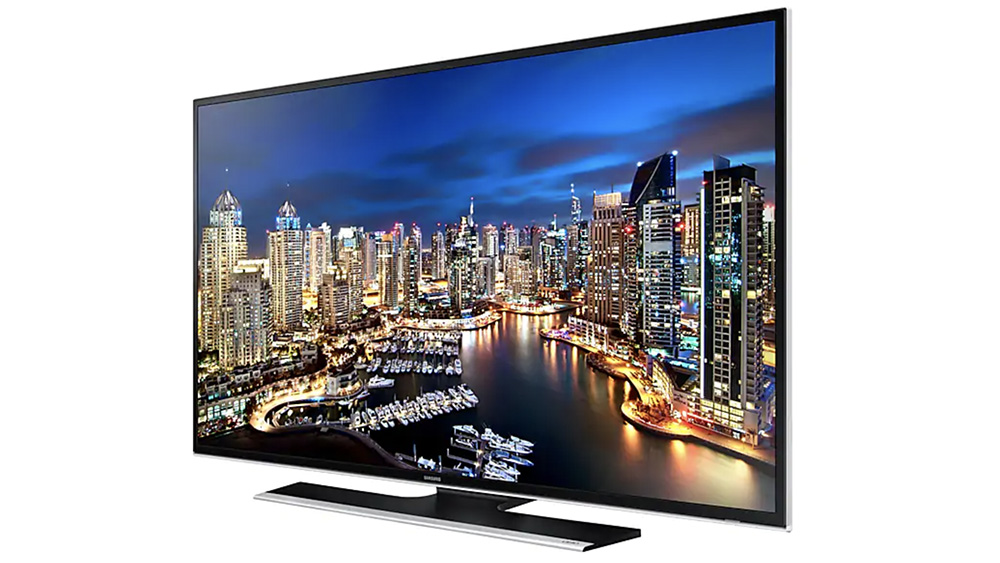
LG and Samsung are large-scale electronics manufacturers headquartered in South Korea. Televisions are a core part of both their businesses, and both brands have built up solid reputations in the UK, US and beyond. In North America, for example, LG and Samsung grew their combined TV market share to over 60% in 2019.
The secret of their success? Catering to each and every consumer's needs. Whether you want a cheap 43in LCD television, a high-end 65in 4K HDR set or even a next-generation 8K TV, Samsung and LG offer a broad range of sizes and resolutions to suit any budget.
LG offers its premium OLED TVs in screen sizes from 48in to a whopping 88in. But there are plenty more affordable options, including budget 43in 4K TVs as well as the company's NanoCell LCD range.
Samsung's high-end QLED TVs span 49in to 82in screen sizes. But you can pick up a five-star budget 43in Samsung LCD TV for around £430.
Samsung and LG also compete in the smartphone market, so if you're thinking of upgrading your mobile or diving into 5G, here's our rundown of the best smartphones.
OLED vs QLED
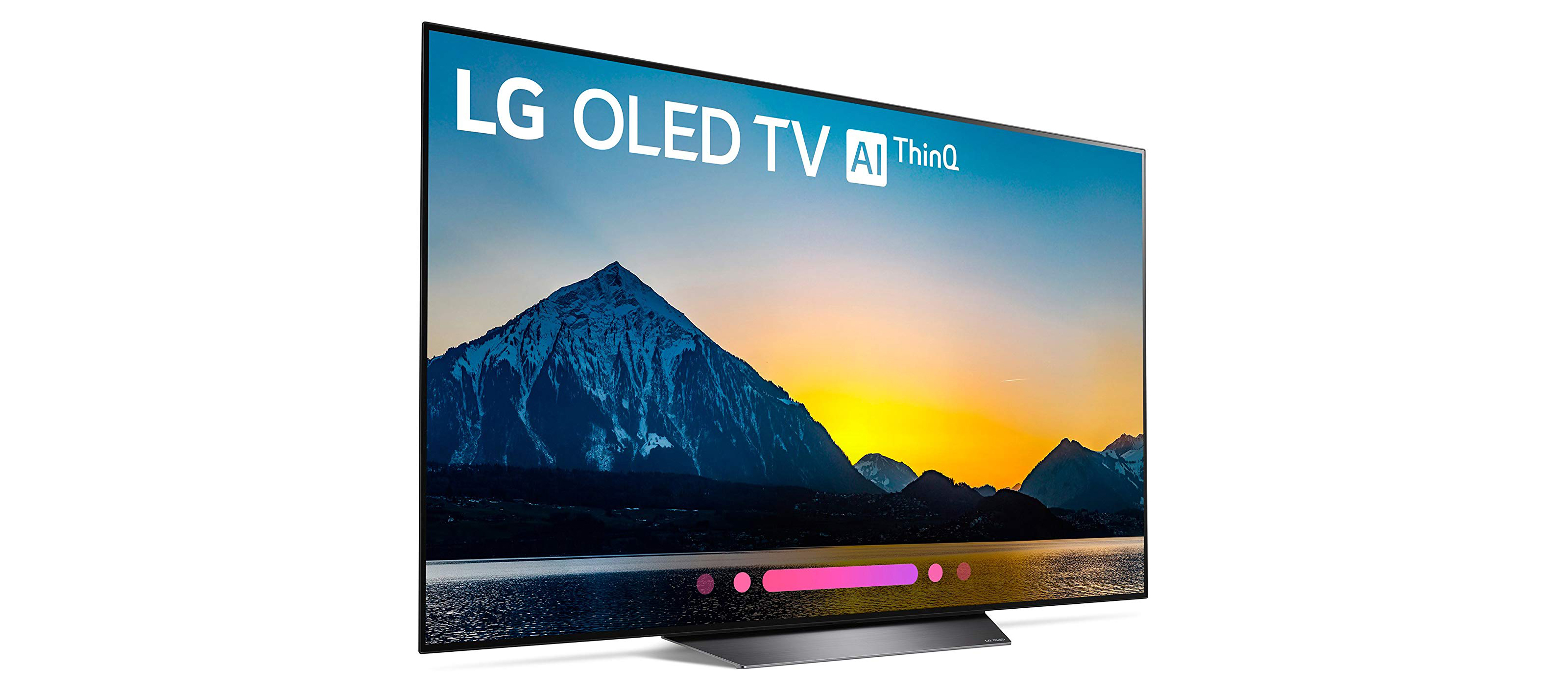
Organic LED or Quantum LED? The technical jargon surrounding premium TVs can sound befuddling, but it's worth knowing the key differences between these cutting-edge technologies.
LG's premium TVs feature OLED (Organic Light-Emitting Diode) panels. OLED is a tech that involves a carbon-based film being placed between two conductors that pass a current through and cause the film to emit a light.
The key advantage is that light can be emitted on a pixel-by-pixel basis, so a bright white or coloured pixel can appear next to one that’s an entirely different colour or entirely black, with neither impacting the other.
The result? A richer, more immersive picture compared to LCD technology. Further advantages of OLED include wider viewing angles, faster response times and thinner sets. LG not only makes the best 4K OLED TVs around, it sells OLED panels to the likes of Panasonic, Philips and Sony to use in their TVs.
Samsung's top-notch TVs boast a rival TV technology called QLED (Quantum-dot Light-Emitting Diode) which is, in concept at least, much like OLED. In theory, each pixel in a QLED display can emit its own light thanks to quantum dots – tiny semiconductor particles only a few nanometres in size.
The problem is that the quantum dots in current QLED TVs do not emit their own light. Instead they simply have the light from a backlight passed through them, in just the same way that an LCD layer does on non-QLED/LED backlit sets.
Samsung claims its QLED TVs "deliver the highest brightness levels currently on the market." But while it's true that QLED offers unbeatable vibrancy, OLED offers exceptional black performance and uncompromised contrast levels. The lack of any backlight helps the OLED cause no end.
So, acronym fans, which is better: OLED or QLED? We've tended to find Samsung's QLED TVs a little punchier and more dynamic, but LG's are more authentic and natural. Both are thrilling, and both have their strengths - there isn't a heck of a lot between them.
Ideally we'd like to see the advantages of each technology combined. Next-generation QLED TVs might offer that, but they won't arrive until 2021 at the very earliest. For now, you can buy a premium Samsung or LG TV and there's a good chance you'll be presented with a superb picture.
Weighing up an LG vs Samsung TV could come down to what smart features they offer. We'll tackle that next.
*Winner: Draw*
webOS vs Tizen
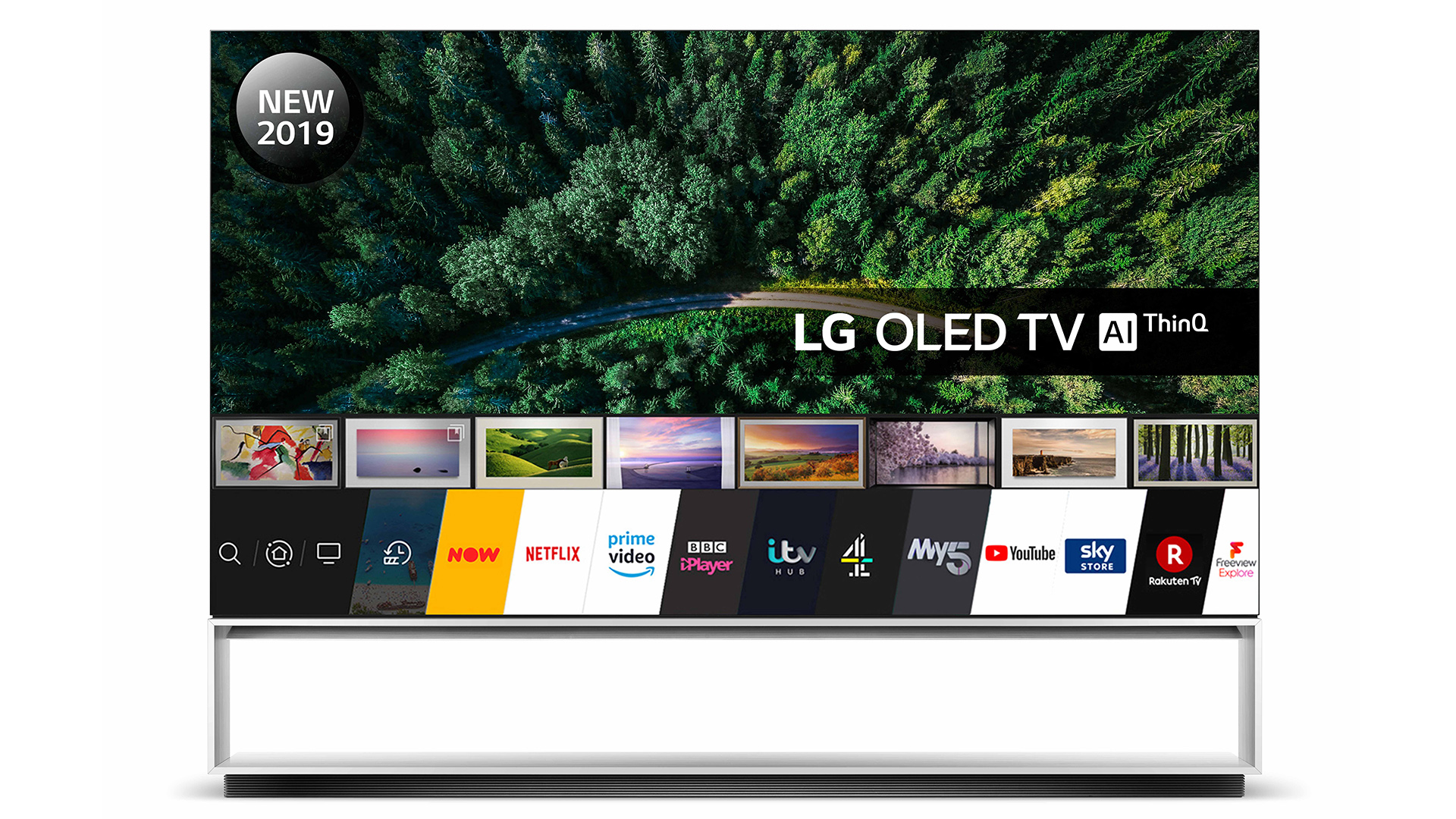
Internet-connected TVs are at the heart of many a home, so it's worth knowing who makes the smartest smart TV around.
Both LG and Samsung use their own smart TV platforms, each with their own strengths and weaknesses. LG's colourful webOS interface features a horizontal menu bar with a row of scrolling content. You'll find it easy to use – even if you class yourself as a technophobe – and it won't interfere with the on screen action. You can also customise the bar with your favourite apps and most-watched channels.
LG's webOS serves up access to all the major streaming apps, including Netflix, Amazon Prime Video and (in the case of 2019 models) the Apple TV app. Premium LG TVs also come with the Magic Remote, which allows you to click, scroll or wave your hand to control the TV.
LG's webOS is excellent, but these days Samsung's Tizen is even better. It's just that bit snappier and more intuitive, and it offers even more apps, including BT Sport and Tidal.
Netflix, Amazon, Apple TV and YouTube are also all present, serving up 4K and HDR content where supported, along with the catch-up TV from all the UK’s major terrestrial broadcasters.
But what of voice assistants? LG’s premium TVs come with Google Assistant built in, and limited compatibility with Alexa-controlled devices. All the but the cheapest Samsung TVs feature the firm's proprietary Bixby assistant, which isn't as smart. But there's the option to use Google Assistant or Alexa through third-party devices.
*Winner: Samsung*
Dolby Vision vs HDR 10+
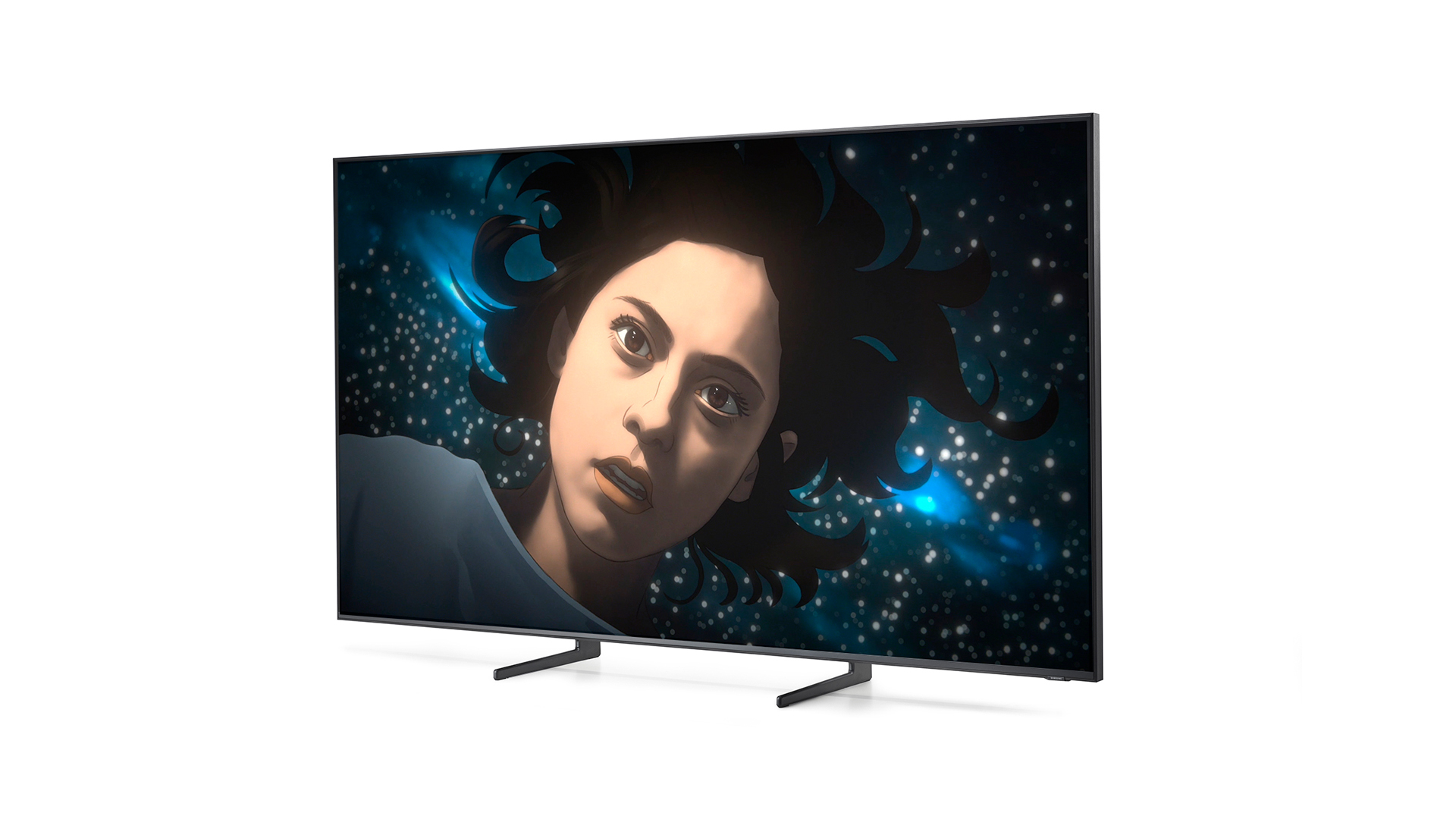
In an effort to take picture quality to the next level, LG and Samsung have backed different horses in the HDR race. LG's premium LCD and OLED TVs boast Dolby Vision support while Samsung's high-end sets have HDR10+.
Both formats heighten the dynamic range of the picture, increasing the contrast between the brightest whites and the darkest blacks. The idea being that the on-screen action will appear more true-to-life.
LG supports Dolby Vision and HDR10, while Samsung has developed its own standard of HDR, called HDR10+. Like Dolby Vision, it boosts images frame-by-frame, making subtle improvements to the picture. But while Dolby Vision offers a 12-bit colour gamut and 10,000 nits of brightness, HDR10+ can only manage 10-bit and 4,000 nits.
Dolby Vision is the more widely supported format, too. You'll find HDR10+ shows on Amazon Prime Video, but not on Netflix or Apple TV. So if you're splashing out on an OLED or QLED TV, it's worth thinking about which streaming services you use the most, and which HDR formats they support.
*Winner: LG*
Best LG and Samsung TVs
If you have a healthy bank balance to play with, we'd point you in the direction of the 55in LG C9, the best performance-per-pound OLED TV we've tested and a 2019 What Hi-Fi? Award winner to boot. It's available in 55in and 65in sizes – both impress with incredible colours, intense blacks and a razor-thin panel.
The more affordable LG B9 offers all the benefits of OLED but is fitted with the company's 2018 processor. It serves up a natural, colourful picture whether you're watching in 4K or upscaling from HD.
If sound quality is a major factor in your decision, the LG E9 has more speakers than the C9 (4.2ch compared with 2.2ch) and outperforms most sub-£500 soundbars.
For 2020, LG has 5 ranges of OLED TV to look out for, including its first-ever 48in model. A number of these should go on sale around March 2020.
If OLED or QLED isn't a dealbreaker, Samsung makes the best-value 'small' TV around. The Samsung 43in UE43RU7470 has an LCD display with edge-lit LED backlight. For around £430, you get 4K, HDR, HDR10+ and a magnificent selection of apps including Apple TV. For the money, it's hard to beat.
If you're after the cream of Samsung's crop, make a beeline for the Q90R, an exceptional QLED TV that combines OLED-rivalling blacks with stunning levels of brightness and a wide viewing angle. We rate both the QE55Q90R and QE65Q90R models at five stars.
The more affordable Samsung QE49Q70R QLED is one of the best all-rounders you can find at 49in. It's not quite as bright as the flagship Q90R and doesn't support Dolby Vision, but it does deliver the vibrancy and sharpness for which Samsung's QLEDs are renowned. Too small? The 65in Q70R is equally impressive.
Strapped for cash? Samsung is your best bet. The 3in Samsung UE43RU7020 is one of the smallest and cheapest models in its 2019 line up and performs well for the money.
8K TVs
Samsung was the first to sell an 8K TV in the UK. While there's no 8K content currently available, they do upscale 4K content using Samsung's processing tech, and generally do it very well. Samsung's smallest and most affordable 2019 8K TV, the 65in QE65Q900R garnered a healthy four stars in our review thanks to its gorgeous native 8K picture and deep, detailed blacks. The 75inch Q950R and 85in Q900R scored the same.
For 2020, Samsung will have two 8K QLED TV ranges, the Q800T and flagship Q950 (Q950S in the US, Q950TS in Europe). They've yet to go on sale, but we recently went hands on with the Q950TS.
LG also sells a handful of 8K TVs in the UK, the 75in 75SM9900 and the gigantic 88in Z9, which costs an eye-watering £30,000. For 2020, LG's 8K TV line-up includes 65in and 77in ZX OLED models plus 65in and 75in sets in three different NanoCell LCD TV ranges.
*Draw*
Verdict
Both LG and Samsung have plenty to offer. If you want the ultimate display, then we think OLED offers the best all-round performance – nothing currently beats an OLED for colour and subtlety. Samsung's QLED displays are certainly dazzling, though, and have a slew of five-star ratings to prove it.
If you're looking for the best value, Samsung also has a wide range of solid budget TVs to choose from. We've reviewed a number of affordable LCD models, all of which offer serious bang for your buck.
MORE:
LG OLED CX vs Samsung Q90T: which is the best 4K TV?
Get the What Hi-Fi? Newsletter
The latest hi-fi, home cinema and tech news, reviews, buying advice and deals, direct to your inbox.
What Hi-Fi?, founded in 1976, is the world's leading independent guide to buying and owning hi-fi and home entertainment products. Our comprehensive tests help you buy the very best for your money, with our advice sections giving you step-by-step information on how to get even more from your music and movies. Everything is tested by our dedicated team of in-house reviewers in our custom-built test rooms in London, Reading and Bath. Our coveted five-star rating and Awards are recognised all over the world as the ultimate seal of approval, so you can buy with absolute confidence.
-
Currently I own both the OLED flagship from LG and the QLED flagship from Samsung in the form of the Q950r and all of my family thinks the Samsung is way better than the LG. LG peaked with the LG 65e7v Oled TV which I bought but then gave to my sister and she even thinks the Samsung is way better. It’s not even close to be honest. Both their black levels are the same even though I think the Samsung’s is better and the Samsung is way brighter.Reply

